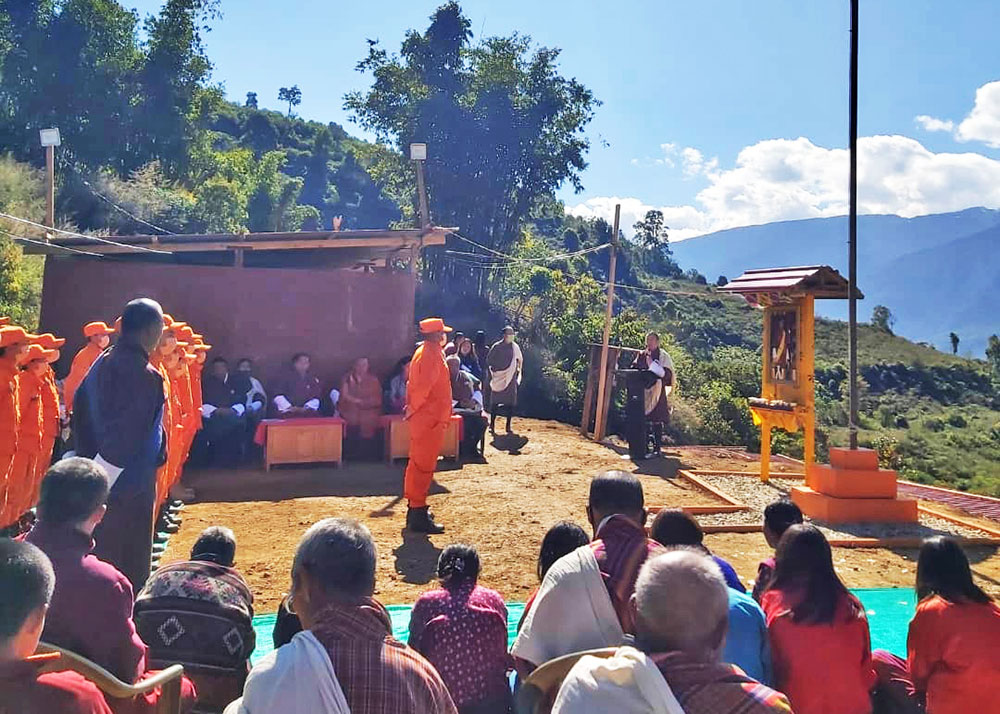Phub Dem
Although Shaba in Sangbaykha, Haa, has ideal temperatures and fertile land, the villagers could not grow vegetables and crops year-round.
This is because the village was plagued by a water shortage until now. However, Shaba is now blessed with a desuung water project that was inaugurated yesterday.
A total of 60 de-suups will execute the integrated irrigation project worth Nu 9.89 million (M) within four months.
The water project is expected to benefit 12 households and provide irrigation water for acres of land.
Residents, facing the water shortage, have left their land uncultivated.

Salhang tendrel ceremony of the project was held yesterday
The water shortage, according to Wangchuk from Shaba, had hampered the socio-economic development and income generation of the villagers. “The land here is fertile and we have an ideal climatic condition.”
He said although the village could grow all sorts of grains and vegetables, the water scarcity, especially during winter, made it difficult for them to reap its benefits.
He said that the locals experience drinking water shortages during winter and they have to depend on the monsoon for irrigation purposes. “The water sources dried up and the smaller ones are not sufficient for drinking purposes.”
He said that his parents grew rice in the past but not anymore, adding that most villagers shifted their source of income from cash crops to livestock, owing to water scarcity. “We buy imported rice from Haa.”
He is hopeful that the water project will bring back agricultural practices.
Wangchuk said that the project would encourage the farmers to grow paddy crops during the summer and mass produce vegetables in winter. “We will be able to diversify our income and revive the barren lands.”
Another farmer, Nado, said some farmers still grow rice, depending on the rainfall. He added that delays in transplanting paddies affect both quality and quantity.
He said that the locals were dependent on a lone stream that usually dries up during the dry season without a good source.
Nado said that with the inauguration of the water project, most villagers are looking forward to a more clean and hygienic lifestyle. “The farmers of remote Shaba will finally reap the benefit of its rich agricultural land.”


